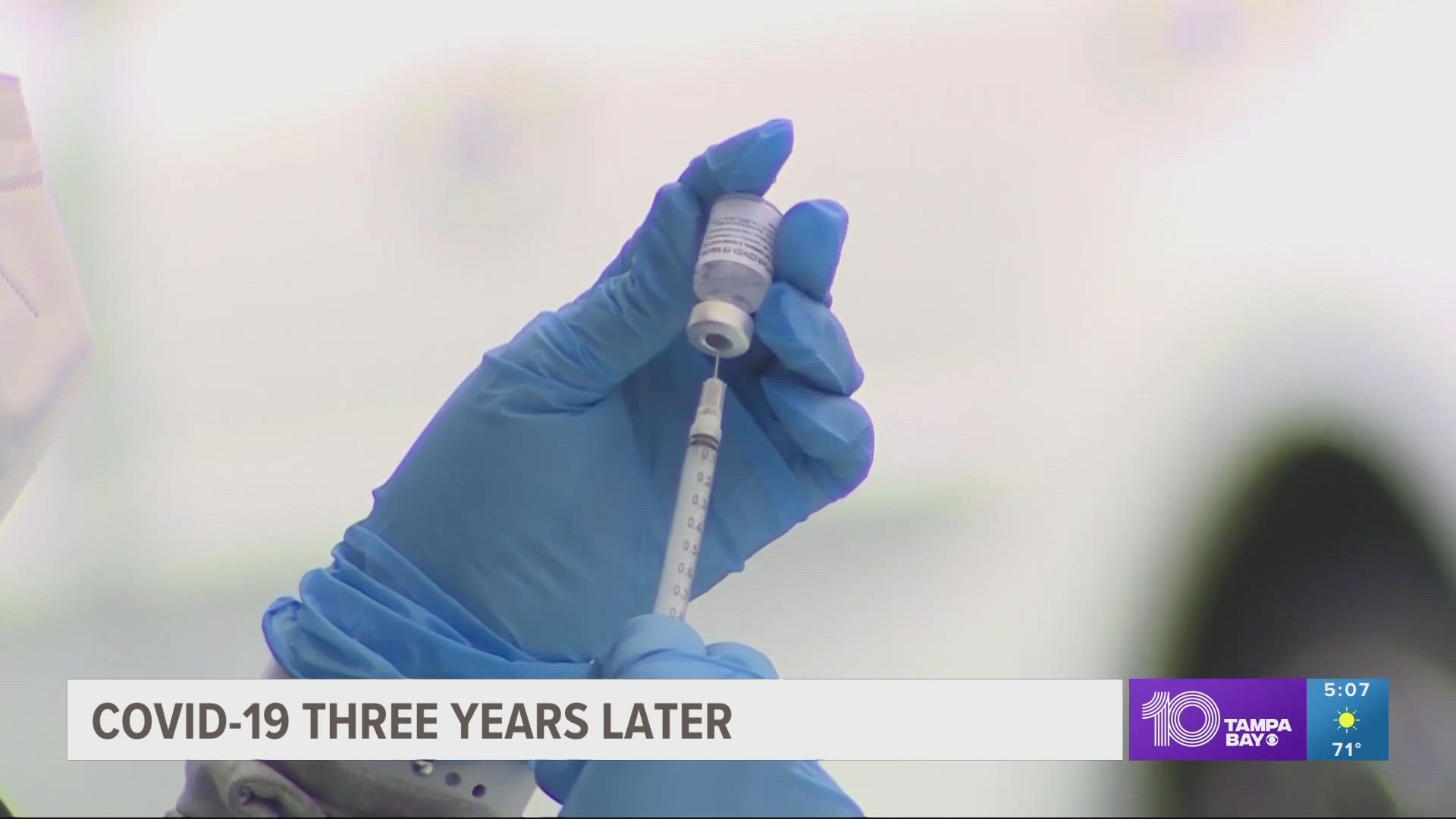TAMPA, Fla. — It’s spring break in our area and chances are pretty good that you’ll remember where you were three years ago today as things started shutting down.
We’ve come a long way since then, but University of South Florida researchers say a new poll finds – surprisingly – the virus continues to be a political flashpoint.
Three years ago, beaches were closed, classrooms were empty and restaurants were struggling to survive.
“It’s been a long three years, but here we are,” Dr. Jill Roberts with USF Public Health said.
Covid numbers are as low as they’ve been since 2020. Vaccines and medications have been developed. But the virus, Roberts warns, is still here.
“And so, we always have to remain vigilant for another variant to pop up,” Roberts said. “Also, we’re still seeing deaths. You know, 1,700 deaths in the last week. From Covid. So, it certainly isn’t gone.”
USF researchers say they’re also surprised by how politically polarizing Covid continues to be. Over the course of time and as we learned more, they thought people would coalesce around scientific facts. But that hasn’t happened.
“There’s also a really stark politicization of the pandemic that really hasn’t faded,” USF Public Affairs Associate Professor Stephen Neely said.
In their recent survey of 2,500 people – a poll that questioned people in all 50 states and Washington D.C. – they found 32% of people surveyed lack confidence in vaccine safety. One in 4 believe the shots could alter your DNA. And 13% still think they contain microchips.
“We thought that some of the key really medical points would fade, um – we haven’t seen that,” Neely said.
Another big difference from three years ago was that only 10% of those surveyed now say Covid-19 poses a high risk to the general public.
Still, about 55% – more than half – said they remain at least somewhat concerned about new variants, the possibility of a new surge, and the potential for experiencing long Covid if they contract the virus.
Neely says political affiliation also influenced trust in public health guidance from the CDC.
There was 89% confidence among Democrats, 62% for Independents, 43% among Republicans.
“Having researched this for the past three years, politicization and misinformation are the two things that I’ve really kept this alive longer than it needed to be," Neely added.
“And from a public health standpoint that’s really disappointing,” Roberts said. “We don’t want to see any public health messaging parties in any way. Anyone could get Covid. Anyone could die from Covid. And you want the prevention and the medicine to be identical for everyone. Regardless of what their political affiliation is.”
To see the full findings, click here.

